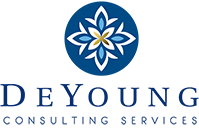In my years as a consultant, I’ve developed relationships with a number of fellow consultants with whom I work on a regular basis. These are people who share similar perspectives on client relationships, quality of work, integrity, and a number of other factors. And they’re just enjoyable to be around. I recently met with a new colleague, Jacqueline White, a strategic writer and researcher. We connected over my affinity for Appreciative Inquiry (AI) as a means of conducting research and her use of a strength-based approach in a recent project she completed.
Appreciative Inquiry, as I said in my previous blog post, “Accentuating the Positive in the Midst of Racial Inequities,” focuses on positive connections that stakeholders have to the organization and to the community. Since the mid 1980’s when it came to be, AI has offered a positive organizational process that uses the power of storytelling and community visioning to transform organizations.
Jacqueline recently worked with the Minnesota Campaign for Achievement Now (MinnCAN) to create a report entitled, “Native American Student Achievement in Minnesota.” While the report does not dismiss the dismal graduation rates of Native American students in Minnesota (we have one of the worst rates in the country), the approach offered for addressing those challenges is strength based, or “AI-like.”
In the report, youth work consultant LeMoine LaPointe (Sicangu Lakota) notes that those who had previously proposed answers “looked at our risk factors and never asked about our strengths. Yet our cultures were successful not because of our deficits but because of our strengths.”
To craft this report MinnCAN interviewed Native leaders, educators, parents and students, and asked, “What’s working well?” They also visited the top 10 schools, where achievement data shows extraordinary success. The resulting report is rich with ready-to-use professional development activities focused on the 11 tribal nations in Minnesota, as well as student artwork and writing. You can access “Native American Student Achievement in Minnesota” here: Access the report.
Jacqueline and I have found tremendous success and gratification using a strength-based approach in our work with communities and organizations. This approach differs significantly from traditional, empirically based research. The table below outlines those differences. I hope you find it helpful as you seek out the strengths in your own communities and organizations.
Empirical and Appreciative Processes as Applied to Organizational Consultation
Empirical Process
- Define the problem
- Fix what’s broken
- Focus on decay
- What problems are you having?
- Learning from our mistakes
- Who is to blame?
- Basic Assumption: People and organizations are problems to be solved.
Appreciative Process
- Search for solutions that already exist
- Amplify what is working
- Focus on life giving forces
- What is working well around here?
- Learning from what works
- Who is to affirm?
- Basic Assumption: People and organizations are mysteries to be embraced.
Adapted from Sue Hammond, Thinkbook of Appreciative Inquiry

